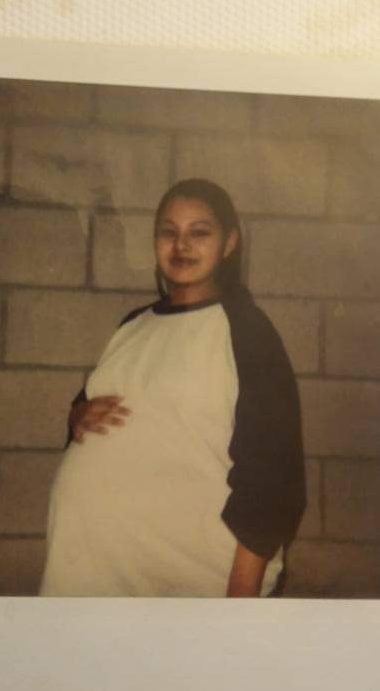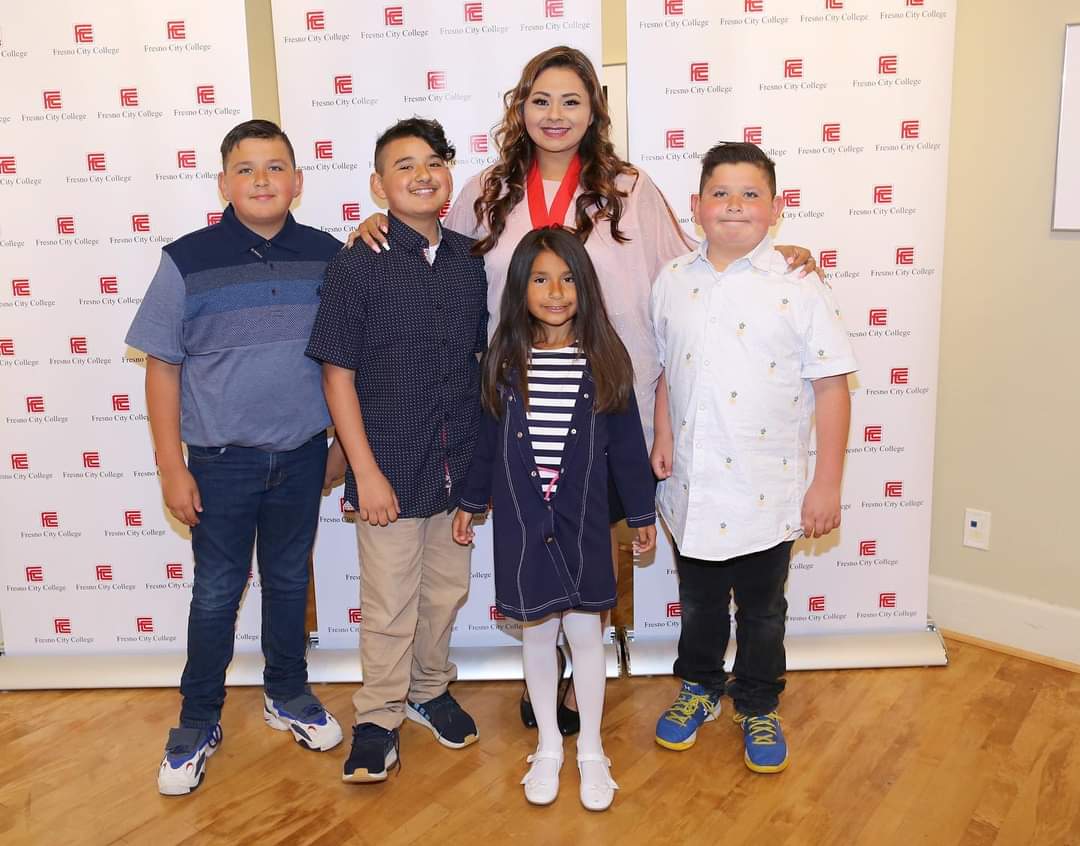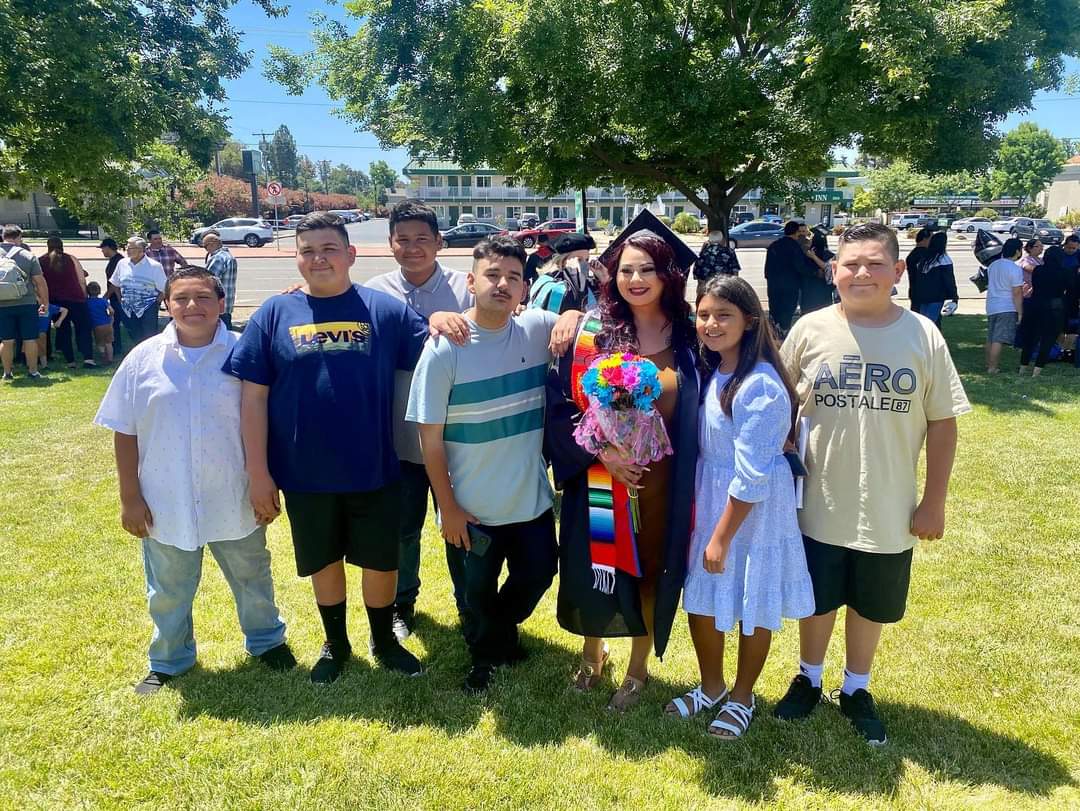Fresno State Project Rebound feature: Victoria Rocha
Video by Carlos Rene Castro/The Collegian
Feb 6, 2023
When she was a teenager, Victoria Rocha was at a place so desperate – battling addiction and spending years in and out of prison – she attempted to take her own life.
Rocha, 39, is enrolled in Fresno State Project Rebound, which helps formerly incarcerated students on campus gain a career through education. She told The Collegian she can never imagine herself at the position she’s in now after the dark path she was on early on in her life.
She experienced a rough childhood, growing up in an unhealthy environment in Bakersfield. Rocha said the community where she was raised was “drugged-infested and gang-infested.”
At the age of 14, Rocha began using meth which would turn into a vicious cycle and a long battle of addiction. She said she found comfort in using drugs and was influences by friends who she thought loved and embraced her.
“For me, I thought that was normal for a little while. You grow up with it and you think that’s what people do.”
Rocha lived in a two-parent household, but neither of them noticed their daughter’s addiction and lifestyle until it was too late.
When her parents got a divorce, Rocha remembers that time as what really pushed her further into drugs.
“I chose the wrong path at a very young age and I fell into addictions and a lifestyle that comes with addiction,” Rocha said.
This lifestyle Rocha describes led to her incarceration three days after she turned 18.
When it finally sunk in that she was going to prison, Rocha saw no escape from her past and attempted to overdose on drugs.
“I was walking along the railroad tracks and crying out to God and saying, ‘If you can hear me, take me away from here. I don’t want to be this person anymore,’” she said.
But after Rocha’s friends found her and nursed her back to health, she had to face the reality that in just two weeks she would be in prison.
Rocha spent a year in prison and recalled the emotions she had at the time.
“It was weird and scary. You know you’re going to be there and you can’t leave,” Rocha said.
After Rocha was released, it wasn’t long before she ended up in prison again, but this time she was pregnant with her first child. She described that moment was the worst time of her life.
Rocha dreamed of giving her baby a stable childhood she didn’t have, with pregnancy being full of excitement, joy and support from family and loved ones. But her dreams were shattered by the reality she was in, having to give birth in prison.
“Being pregnant in prison with my first child, all of the things that you expect and desire as a mom are gone.The inmates are comforting you and teaching you how to hold a bottle,” Rocha said. “And when I went into labor, it was crazier because I was cuffed to a bed while I was pushing my son out and I didn’t have my mom there holding my hand.”
But there were moments of empathy and support from unlikely places that Rocha was thankful for.
“One of the guards grabbed my hand and said, ‘Push, mija push,” and she became that mother figure for those moments,” Rocha said.

After giving birth to her first child, Rocha only had a few moments with him before her Dad and stepmom would come and take him to their home in Fresno. After they took him, she was left with just a polaroid picture
Rocha saw her family as the silver lining for her child’s birth. She said she was lucky to have people to take care of her kid without going through the foster care system. She thanked her family for that time in her life.
While she was incarcerated, Rocha kept a positive attitude by showing gratitude that one day she would be released.
“You can’t show weakness. You have people around doing life sentences and at least I get to get out one day and see my son and they don’t,” Rocha said.
But after Rocha had four more children, she couldn’t end the destructive cycles she continued to put herself in.
“I didn’t learn my lesson. Addiction is hard, and when you are trying to cope, you go back to what made you feel good and what took the pain away,” Rocha said.
After feeling guilty for what she put her children through and beginning to question her lifestyle choices, Rocha faced a moment that changed everything for her.
“My dad came to visit me and he said, ‘This is the last time. You need to get it together or we are going to take the kids from you,’” she said.
Prior to that visit, Rocha’s family had never threatened to take her children, but it was the last straw for them and it was an ultimatum that would shake Rocha to her core.
Shortly after that visit, Rocha received a letter from her son that expressed how much he still loved her, and how much they all still loved her.
“That moment of realizing they still loved me after everything I put them through meant everything,” Rocha said.
It was from that point forward that Rocha decided to change and get the help she truly needed. In 2012, instead of doing nine years in prison, the judge allowed her to go to a program that helps with drug addiction for three years, where she worked hard to get clean.
Other than addiction, Rocha faced the same challenges as many people who have been convicted. Because she had multiple felonies, it was difficult and challenging to find a job so she decided to focus on her education.
“I needed to give myself some time to reestablish myself and prove that I was a person worthy of all of the things I have now,” Rocha said.
Rocha attended Fresno City College and joined the Rising Scholars Program, a program funded by the Formerly Incarcerated Students Reentry Program Grant.

“The program is designed to establish or support formerly incarcerated students enrolled in community college. We focus on the student’s successful reentry into the community,” it said on the Rising Scholars Program’s website.
It was during her time there that she met Mark McNiff, a senior program specialist in the Extended Opportunity Programs and Services (EOPS) department.
McNiff has known Rocha for eight years and described her as a very driven individual.
In Mcniff’s office, there is a framed Focus Forward Magazine article that highlighted Rocha in one of their issues.
He said he has it there because of how inspired he was from Rocha’s story and ability to regain her life after prison.
Rocha graduated from Fresno City College with an Associate of Arts degree in human services, with an emphasis in drug and alcohol counseling.
From there, she transferred to Fresno State and joined Project Rebound, a program that supports the higher education and successful reintegration of formerly incarcerated individuals wishing to enroll and succeed at California State University.
“It’s a hub where we can all go to receive services, encouragement, and resources,” Rocha said.“Project Rebound is a family they have been there to support me as if they were my real family and they care about their students.”
She went on to receive her bachelor’s in social work and is now in the master’s program.
During her time at Fresno State, she met Dr. Cheryl Whittle, the Title IV-E program coordinator.
“I met Victoria when she was a BA student, she was really passionate about social work and I was really impressed with her,” Whittle said.
Whittle describes Rocha’s character as a trailblazer who is bright, energetic and determined.



Rocha’s brutal honesty about her past and about her journey is what impresses Whittle the most.
“When I think about her and the life experiences she’s had; to where she is right now and to be able to say, ‘I’ve overcome a lot of things’; and to be able to think about what she’s doing for children, the legacy she’s setting in place is just amazing,” Whittle said. “ I’m getting chills just thinking about it.”
Now, Rocha works for the program she was once a part of at Fresno City College, Rising Scholars, and spends her time there doing what she loves the most.
“I’m passionate about working with the youth and this population because I feel that if someone would just talk to them and say, ‘Hey, it’s not as cool as you think and it’s a waste of time,’ it would impact them, especially from someone who has been there,” Rocha said. What I’ve been through lets me relate to the population I work with and have empathy and understanding.”
She has also continued to work on herself and become a better mother to her kids. Rocha
broke the self-destructing cycle in her life and formed new, healthy habits that she never had growing up.
“It’s my responsibility to make sure my kids know the difference and they do,” Rocha said. “Two [of my] kids attend Fresno City and are doing high school and college at the same time. I have expectations for them because I tell them they have potential and they have a purpose.”
When Rocha drives to Fresno State, she shares that at times it feels surreal, to know where she was and how far she has come.
Many people who know Rocha have shared their excitement, and a sense of pride in regard to who she is and all that she will continue to overcome and accomplish.
“I see her as a rising star. She is going to be somebody who is going to go far in her life and her career,” Whittle said.
Regardless of the path that got her to where she now stands, Rocha has never been more proud of who she is.
“I love it. I wouldn’t change it. I’m glad those people didn’t hire me every time I went and applied for a job. I’m glad education was my only option at the time because I would not be who I am today without my education,” Rocha said.






